the podcast series
season 5—episodes 40–49
“If you have a good relationship with your professors, you can show them that you actually give a crap about the class they’re teaching. They might even be willing to bend some rules for you if you’re in trouble.”
—Tony
season 5—episodes 40–49
season 4—episodes 30–39
season 3—episodes 20–29
season 2—episodes 10–19
season 1—episodes 1–10
WATCH & LISTEN
episode 43
episode 43
episode 45
Tony graduates with an Econ degree from St. Mary's College

Tony Yau shared every twist and turn in his college career with the Autism Goes to College audience. From his first semester at the University of Oregon to a re-orienting stopover at community college and on to St. Mary's, Tony's been generous with his candid takes on college life. Some of his insights: Don't over do it with DoorDash, don't hesitate to switch majors, or, even colleges. Because what Tony reveals in this final episode of his undergrad experience is that once you're in the right place studying something you care about, it can all flow a lot better. Oh yeah, and he definitely did not like the wrap around support dorm for neurodivergent students. He likes his decompression and down time, so an off campus solo apartment made all the difference. And now, he has his degree. Hear about Tony's internship, and what's next on this episode.
WATCH & LISTEN
episode 43
episode 43
episode 44
LIVE FROM UCLA!
With special guests from the Bruin Neurodiversity Collective
LIVE FROM UCLA!
With special guests from the Bruin Neurodiversity Collective
LIVE FROM UCLA!
With special guests from the Bruin Neurodiversity Collective

In this special edition ep, Autism Goes to College goes to college with this live event taping recorded at UCLA. Two students, Jenny M. and Danny N. share their stories of navigating from community college to UCLA with our host, Katharine O'Brien. Insights include hacks and how-tos for transfer students, accessing evaluations and accommodations, and how mental health counseling might make all the difference. Bonus: Ryan Neale returns with an update on how it's going as he heads into his junior year, and the latest developments with the student self-advocacy and social space he founded on campus, the Bruin Neurodiversity Collective. Have you heard of body doubling? You probably want to know about this.
WATCH & LISTEN
episode 43
episode 43
episode 43
She graduated with a BA + an autism diagnosis
She graduated with a BA + an autism diagnosis
She graduated with a BA + an autism diagnosis

L chose a college experience that started out at the liberal arts-focused, smaller Oxford College campus of Emory University. Coming from a small school in Savannah, it was a choice that felt like a great fit for a lot of reasons. Smaller class sizes, a smaller student body, and less chaotic than the giant campus and Atlanta scene that are part of a typical Emory experience. Academically, L found it ideal. But still, some aspects of college life were hard to navigate. And she continued to struggle with a familiar difficulty: initiating relationships. Listening to a friend talk about similar challenges during her freshman and sophomore years, L started to learn something about herself: maybe... I'm autistic? At first, she says, that seemed unlikely. But the more L listened and learned, the more she felt like, actually, this might explain a lot. So, she decided to get evaluated. L tells her story about getting into college, not even considering looking for a school with accommodations and leaving college better prepared for the road ahead with both her degree and a much greater understanding of who she is.
L chose a college experience that started out at the liberal arts-focused, smaller Oxford College campus of Emory University. Coming from a small school in Savannah, it was a choice that felt like a great fit for a lot of reasons. Smaller class sizes, a smaller student body, and less chaotic than the giant campus and Atlanta scene that are part of a typical Emory experience. Academically, L found it ideal. But still, some aspects of college life were hard to navigate. And she continued to struggle with a familiar difficulty: initiating relationships. Listening to a friend talk about similar challenges during her freshman and sophomore years, L started to learn something about herself: maybe... I'm autistic? At first, she says, that seemed unlikely. But the more L listened and learned, the more she felt like, actually, this might explain a lot. So, she decided to get evaluated. L tells her story about getting into college, not even considering looking for a school with accommodations and leaving college better prepared for the road ahead with both her degree and a much greater understanding of who she is.
L chose a college experience that started out at the liberal arts-focused, smaller Oxford College campus of Emory University. Coming from a small school in Savannah, it was a choice that felt like a great fit for a lot of reasons. Smaller class sizes, a smaller student body, and less chaotic than the giant campus and Atlanta scene that are part of a typical Emory experience. Academically, L found it ideal. But still, some aspects of college life were hard to navigate. And she continued to struggle with a familiar difficulty: initiating relationships. Listening to a friend talk about similar challenges during her freshman and sophomore years, L started to learn something about herself: maybe... I'm autistic? At first, she says, that seemed unlikely. But the more L listened and learned, the more she felt like, actually, this might explain a lot. So, she decided to get evaluated. L tells her story about getting into college, not even considering looking for a school with accommodations and leaving college better prepared for the road ahead with both her degree and a much greater understanding of who she is.
WATCH & LISTEN
episode 42
episode 42
episode 42
What Professors Need to Know!
What Professors Need to Know!
What Professors Need to Know!
The number of neurodivergent students in college keeps rising. Around 20% of college students have diagnosed or undiagnosed autism, ADHD, dyslexia or some other processing or neurological difference, according to expert estimates. But very few campuses provide faculty with training in how to meet the learning needs of these students in their classrooms. NeuroPrep, an online course for college instructors, fills that gap. We'll hear from the creators of the course and two professors who say even if you think you know, there's plenty to learn about how to serve all students. Best answer: Ask students what they need, be aware of invisible challenges, accommodate everyone in class with extra time, and adjust your teaching style as needed.
The number of neurodivergent students in college keeps rising. Around 20% of college students have diagnosed or undiagnosed autism, ADHD, dyslexia or some other processing or neurological difference, according to expert estimates. But very few campuses provide faculty with training in how to meet the learning needs of these students in their classrooms. NeuroPrep, an online course for college instructors, fills that gap. We'll hear from the creators of the course and two professors who say even if you think you know, there's plenty to learn about how to serve all students. Best answer: Ask students what they need, be aware of invisible challenges, accommodate everyone in class with extra time, and adjust your teaching style as needed.
The number of neurodivergent students in college keeps rising. Around 20% of college students have diagnosed or undiagnosed autism, ADHD, dyslexia or some other processing or neurological difference, according to expert estimates. But very few campuses provide faculty with training in how to meet the learning needs of these students in their classrooms. NeuroPrep, an online course for college instructors, fills that gap. We'll hear from the creators of the course and two professors who say even if you think you know, there's plenty to learn about how to serve all students. Best answer: Ask students what they need, be aware of invisible challenges, accommodate everyone in class with extra time, and adjust your teaching style as needed.

WATCH & LISTEN
episode 41
episode 41
episode 41
At Bridgewater State, Dom Brings it!
At Bridgewater State, Dom Brings it!
At Bridgewater State, Dom Brings it!
When Dom transferred to Bridgewater State in Bridgewater, MA. from a community college, he shared on an earlier episode of the pod that he planned to move into the dorms after a semester. Instead, he ultimately decided to continue commuting- both to save some money and enjoy the support of his parents. But Dom is deeply involved with campus life. He became an Orientation Leader (which did include a stint of dorm living), he works with campus programming, and is now drawing on his own experiences to help create an internship program to ensure that inclusion in campus organizations is not just integration, but more meaningful. On track to graduate next year, Dom is a communications disorders major. He says professors have been helpful, accommodations have been flexible over the years, but he's found a couple of the classes challenging enough to retake them for a better grade as he'd like to graduate with honors. Dom's a music minor, plays in multiple student groups, and says he's usually on campus six days a week, because there is always something happening at BSU, and he doesn't want to miss out.
When Dom transferred to Bridgewater State in Bridgewater, MA. from a community college, he shared on an earlier episode of the pod that he planned to move into the dorms after a semester. Instead, he ultimately decided to continue commuting- both to save some money and enjoy the support of his parents. But Dom is deeply involved with campus life. He became an Orientation Leader (which did include a stint of dorm living), he works with campus programming, and is now drawing on his own experiences to help create an internship program to ensure that inclusion in campus organizations is not just integration, but more meaningful. On track to graduate next year, Dom is a communications disorders major. He says professors have been helpful, accommodations have been flexible over the years, but he's found a couple of the classes challenging enough to retake them for a better grade as he'd like to graduate with honors. Dom's a music minor, plays in multiple student groups, and says he's usually on campus six days a week, because there is always something happening at BSU, and he doesn't want to miss out.
When Dom transferred to Bridgewater State in Bridgewater, MA. from a community college, he shared on an earlier episode of the pod that he planned to move into the dorms after a semester. Instead, he ultimately decided to continue commuting- both to save some money and enjoy the support of his parents. But Dom is deeply involved with campus life. He became an Orientation Leader (which did include a stint of dorm living), he works with campus programming, and is now drawing on his own experiences to help create an internship program to ensure that inclusion in campus organizations is not just integration, but more meaningful. On track to graduate next year, Dom is a communications disorders major. He says professors have been helpful, accommodations have been flexible over the years, but he's found a couple of the classes challenging enough to retake them for a better grade as he'd like to graduate with honors. Dom's a music minor, plays in multiple student groups, and says he's usually on campus six days a week, because there is always something happening at BSU, and he doesn't want to miss out.

WATCH & LISTEN
episode 40
episode 40
episode 40
What happens after high school? Start that conversation early!
What happens after high school? Start that conversation early!
What happens after high school? Start that conversation early!
Meet Jasmine, in her second year at a community college, hoping to make the leap to a four year university.
Meet Jasmine, in her second year at a community college, hoping to make the leap to a four year university.
Expectations may vary. Some students on the spectrum find that community college is a good next step. Many want to take a gap year, get some work experience or travel. Others are eager to head off to a four year college. Neurodivergent neurodiversity education advocate Amanda Morin says the time to start talking about post- high school transition planning is early. Because what a student wants and expects to do after high school may not be aligned with parents' expectations, and that means talking it through. Morin also says it's important to remember there are no IEPs in college, and after turning 18, the student legally becomes their own advocate. Insights and strategies for setting off on the road ahead.


PODCAST EPISODE 45:
Tony graduates with an Econ degree from St. Mary's College
Tony Yau shared every twist and turn in his college career with the Autism Goes to College audience. From his first semester at the University of Oregon to a re-orienting stopover at community college and on to St. Mary's, Tony's been generous with his candid takes on college life. Some of his insights: Don't over do it with DoorDash, don't hesitate to switch majors, or, even colleges. Because what Tony reveals in this final episode of his undergrad experience is that once you're in the right place studying something you care about, it can all flow a lot better. Oh yeah, and he definitely did not like the wrap around support dorm for neurodivergent students. He likes his decompression and down time, so an off campus solo apartment made all the difference. And now, he has his degree. Hear about Tony's internship, and what's next on this episode.
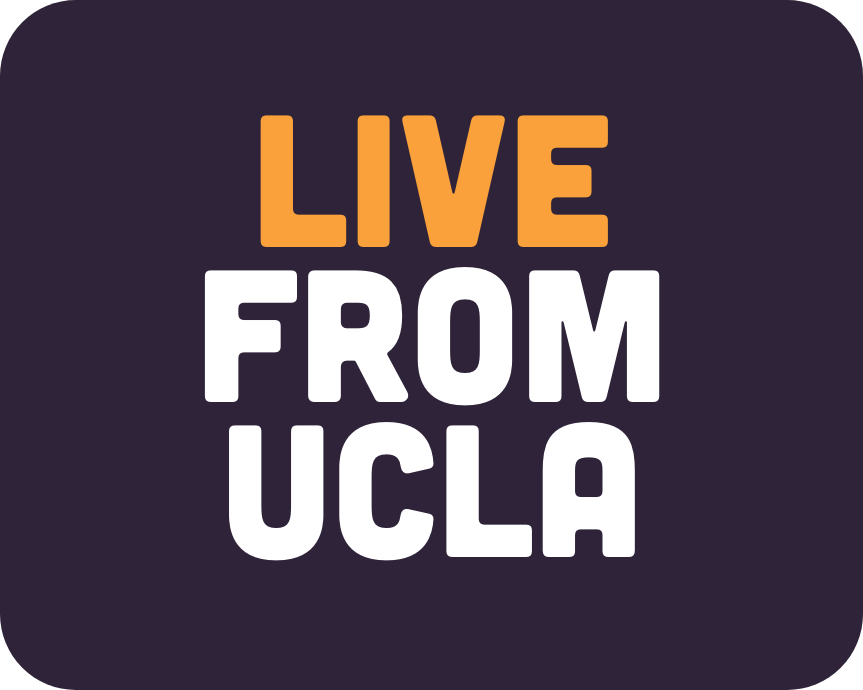
PODCAST EPISODE 44:
LIVE FROM UCLA! With special guests from the Bruin Neurodiversity Collective
In this special edition ep, Autism Goes to College goes to college with this live event taping recorded at UCLA. Two students, Jenny M. and Danny N. share their stories of navigating from community college to UCLA with our host, Katharine O'Brien. Insights include hacks and how-tos for transfer students, accessing evaluations and accommodations, and how mental health counseling might make all the difference. Bonus: Ryan Neale returns with an update on how it's going as he heads into his junior year, and the latest developments with the student self-advocacy and social space he founded on campus, the Bruin Neurodiversity Collective. Have you heard of body doubling? You probably want to know about this.
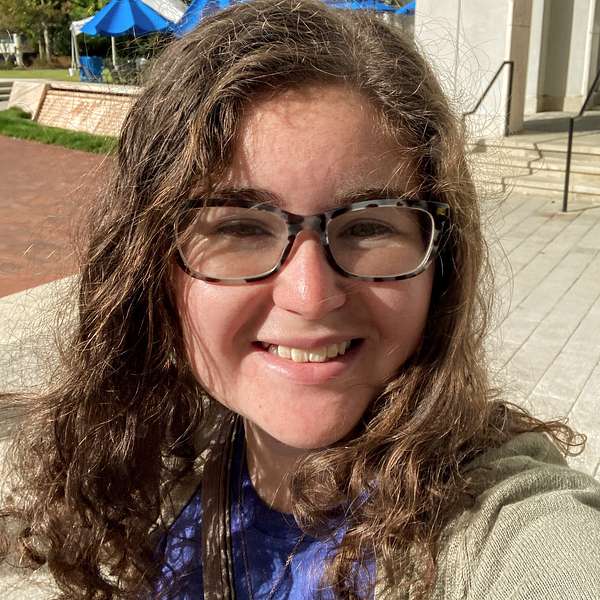
PODCAST EPISODE 43:
She graduated with a BA + an autism diagnosis
L chose a college experience that started out at the liberal arts-focused, smaller Oxford College campus of Emory University. Coming from a small school in Savannah, it was a choice that felt like a great fit for a lot of reasons. Smaller class sizes, a smaller student body, and less chaotic than the giant campus and Atlanta scene that are part of a typical Emory experience. Academically, L found it ideal. But still, some aspects of college life were hard to navigate. And she continued to struggle with a familiar difficulty: initiating relationships. Listening to a friend talk about similar challenges during her freshman and sophomore years, L started to learn something about herself: maybe... I'm autistic? At first, she says, that seemed unlikely. But the more L listened and learned, the more she felt like, actually, this might explain a lot. So, she decided to get evaluated. L tells her story about getting into college, not even considering looking for a school with accommodations and leaving college better prepared for the road ahead with both her degree and a much greater understanding of who she is.
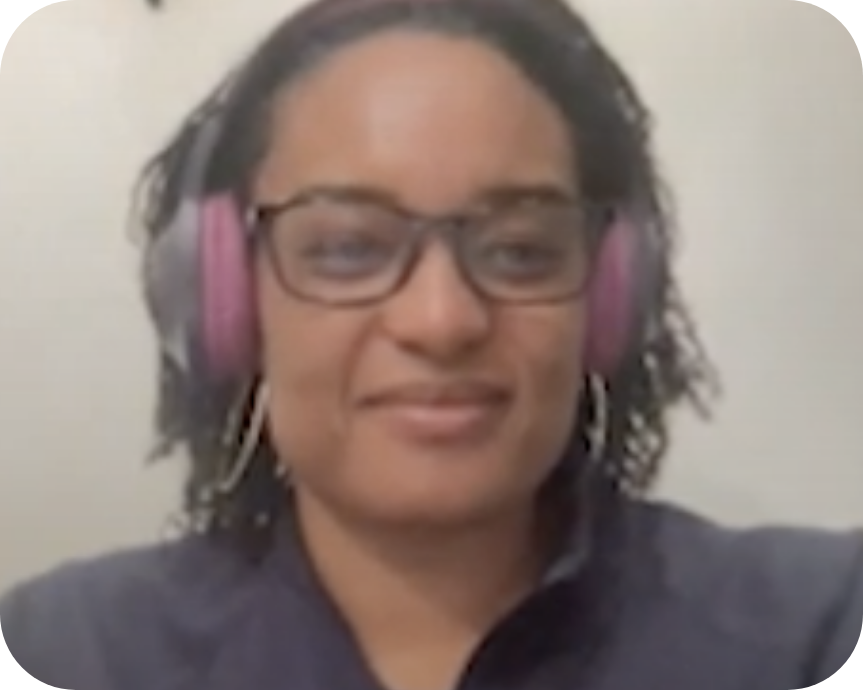
PODCAST EPISODE 42:
What professors need to know
The number of neurodivergent students in college keeps rising. Around 20% of college students have diagnosed or undiagnosed autism, ADHD, dyslexia or some other processing or neurological difference, according to expert estimates. But very few campuses provide faculty with training in how to meet the learning needs of these students in their classrooms. NeuroPrep, an online course for college instructors, fills that gap. We'll hear from the creators of the course and two professors who say even if you think you know, there's plenty to learn about how to serve all students. Best answer: Ask students what they need, be aware of invisible challenges, accommodate everyone in class with extra time, and adjust your teaching style as needed.
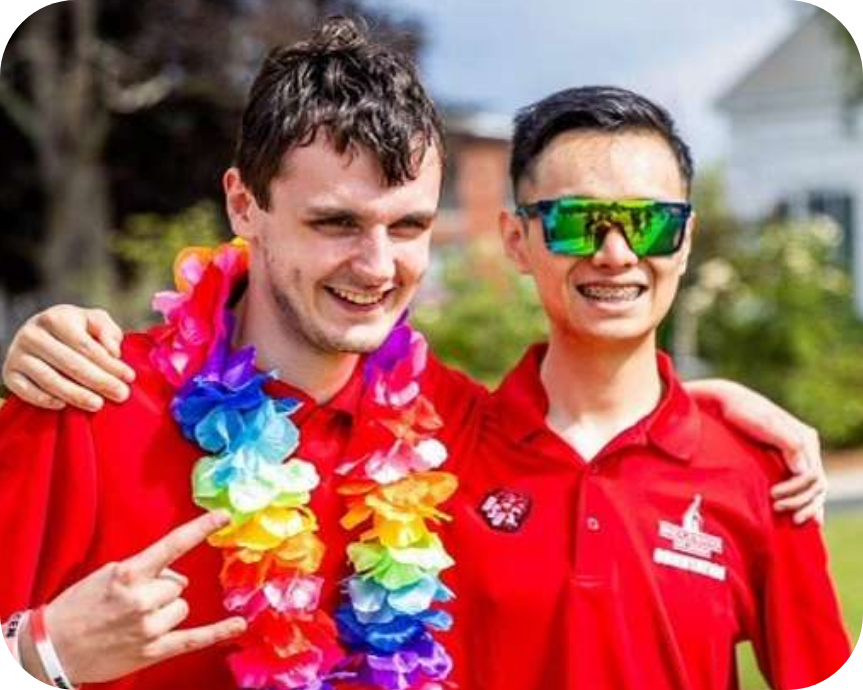
PODCAST EPISODE 41:
At Bridgewater State, Dom Brings it
When Dom transferred to Bridgewater State in Bridgewater, MA. from a community college, he shared on an earlier episode of the pod that he planned to move into the dorms after a semester. Instead, he ultimately decided to continue commuting- both to save some money and enjoy the support of his parents. But Dom is deeply involved with campus life. He became an Orientation Leader (which did include a stint of dorm living), he works with campus programming, and is now drawing on his own experiences to help create an internship program to ensure that inclusion in campus organizations is not just integration, but more meaningful. On track to graduate next year, Dom is a communications disorders major. He says professors have been helpful, accommodations have been flexible over the years, but he's found a couple of the classes challenging enough to retake them for a better grade as he'd like to graduate with honors. Dom's a music minor, plays in multiple student groups, and says he's usually on campus six days a week, because there is always something happening at BSU, and he doesn't want to miss out.
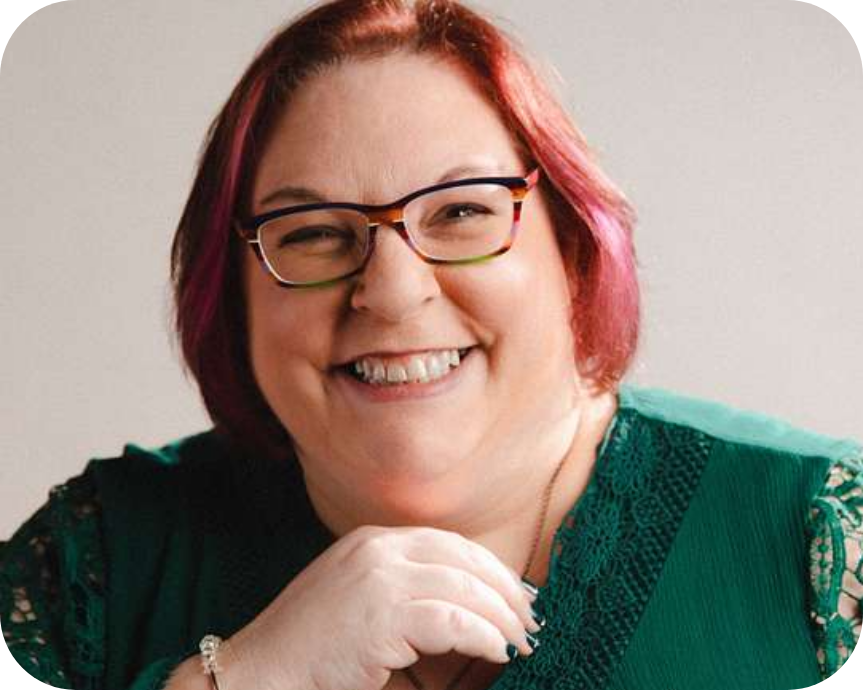
PODCAST EPISODE 40:
What happens after high school? Start that conversation early
Expectations may vary. Some students on the spectrum find that community college is a good next step. Many want to take a gap year, get some work experience or travel. Others are eager to head off to a four year college. Neurodivergent neurodiversity education advocate Amanda Morin says the time to start talking about post- high school transition planning is early. Because what a student wants and expects to do after high school may not be aligned with parents' expectations, and that means talking it through. Morin also says it's important to remember there are no IEPs in college, and after turning 18, the student legally becomes their own advocate. Insights and strategies for setting off on the road ahead.